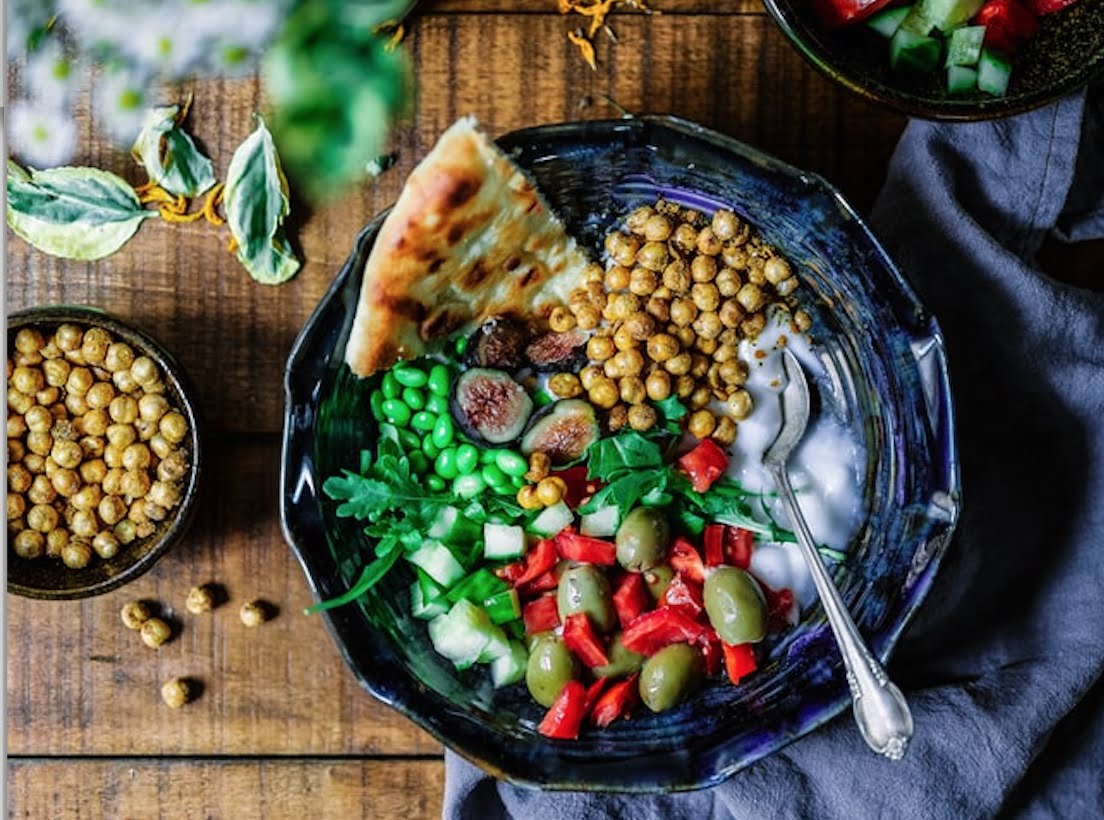
Why should I eat more fibre?
Eat more fibre! Fibre is good for you! Fibre will help you with your skin/mood/gut, etc. Fibre will help you lose weight!…
There are countless headlines advising us to eat more fibre. But what is fibre and why do we need it so much?
Fibre is an important nutrient that is often lacking in our western diet. Fibre is essential to a healthy diet: many studies have shown that consuming enough fibre can lead to reduced risks of many chronic diseases such as cardiovascular disease, type 2 diabetes and bowel cancer.
Fibre is a type of carbohydrate that cannot be digested by our gut. It comes in two forms:
– insoluble fibre, which goes through our digestive system and adds bulk to our stools thus helping pass solids out more easily. Good food sources of insoluble fibre are vegetables, fruits, legumes (chickpeas, lentils, beans…) or nuts.
– soluble fibre, which dissolves in water and assist many of our bodily functions through its impact on our blood sugar levels, cholesterol levels…
Most plant-based foods contain both soluble and insoluble fibre, albeit in different quantities.
Why is fibre important?
Fibre is essential to support the health of our gut. And, as discussed in some of my other blogs, by supporting the health of our gut, we support the health of our brain through the gut-brain axis.
By feeding our gut bacteria (our gut microbiome), fibre participate in many positive bodily reactions and:
- Regulate our blood sugar levels
- Balance our cholesterol levels
- Regulate our blood pressure
- Control our body weight by triggering our satiety hormones (it basically makes us feel full)
- Reduce the risks of certain cancers
- Prevent constipation by making our stools softer and easier to pass
- Detoxify the body by allowing more regular bowel movements
- Lower our risk of diabetes
So clearly, fibre can help! It is important to note that eating too much of it can cause gut issues such as bloating, gas or pain. But in todays’ world, most of us are not consuming enough fibre. It is recommended adults consume at least 30g per day but most of us are only consuming half of that, if not less. If you decide to increase your fibre intake, do so gradually to allow your gut to adjust and avoid too much bloating and gas. It is also important to drink plenty of water to allow the fibre to do its job: aim for 2L a day, drunk all through the day.
What does 30g of fibre a day looks like?
Here are a few examples of foods you can eat to increase your daily fibre intake:
- 2 slices of wholemeal bread: 5g of fibre
- 100g wholemeal boiled spaghetti: 3.5g of fibre
- 1 cup of cooked black beans: 15 grams of fibre
- 50g of porridge: 5g of fibre
- 1 banana or apple: 2g of fibre
However, life is busy and we don’t always have the time or energy to count! So, a good and easy way to make sure you get enough fibre – without the hassle – is simply to increase your intake of fruits, vegetables, legumes, and grains each day. The “Eat 5 a day” campaign is not for nothing and really, ideally, if you can up that to 8-10 portions of plant-based foods a day, you will be on the winning team in terms of health!
Simple ways to get more fibre in your day
- Add beans/pulse/lentils to stews, soups or salads
- Add seeds to salads, soups, smoothies, yogurt or breakfast cereals
- Eat fruit and vegetables with the skin on. Eat wholegrains such as brown pasta or rye.
- Eat a variety of fruit and vegetables for diversity for the gut bacteria, half your plate to be veg!
Where can I get fibre?
Legumes/pulses: lentils, beans, whole oats, brown rice, edamame, chickpeas, quinoa…
Vegetables: broccoli, kale, greens beans, peas, spinach, cauliflower, carrots, artichoke…
Nuts/seeds: almonds, chia seeds, pumpkin seeds, sesame seeds, flaxseed, pistachios, walnuts…
Fruits: berries, apples, avocado, pears, prunes, figs….
So clearly fibre has many health benefits so it is worth increasing its amount in our daily diet. I hope the suggestions mentioned in this blog have given you ideas to add more fibre in your daily diet. It is worth it: go for it and you will notice the difference to your health!
If you would like to explore this further, feel free to check my services as a Nutritional Therapist, get in touch with me here or call me on 07788 444 199.